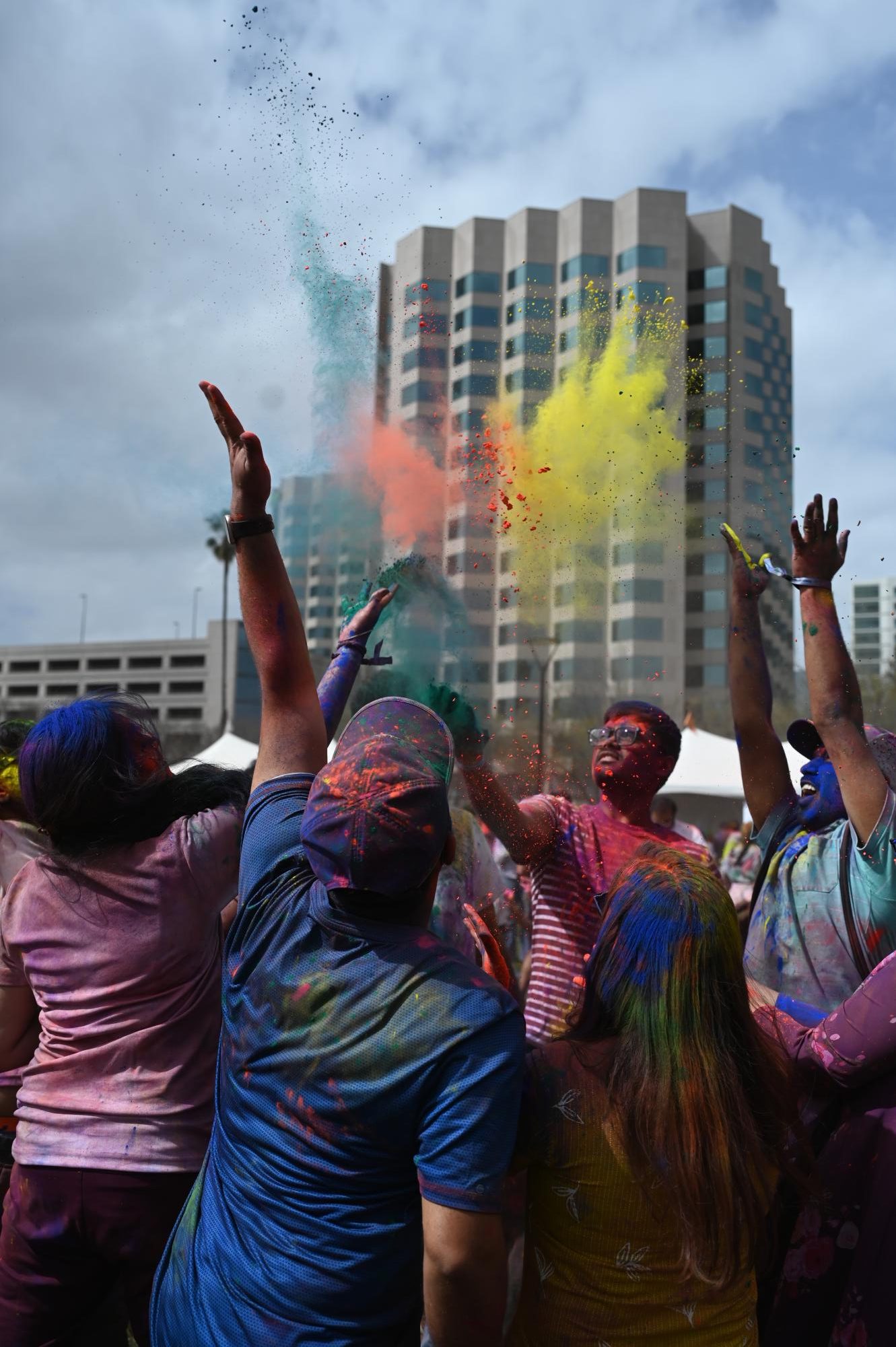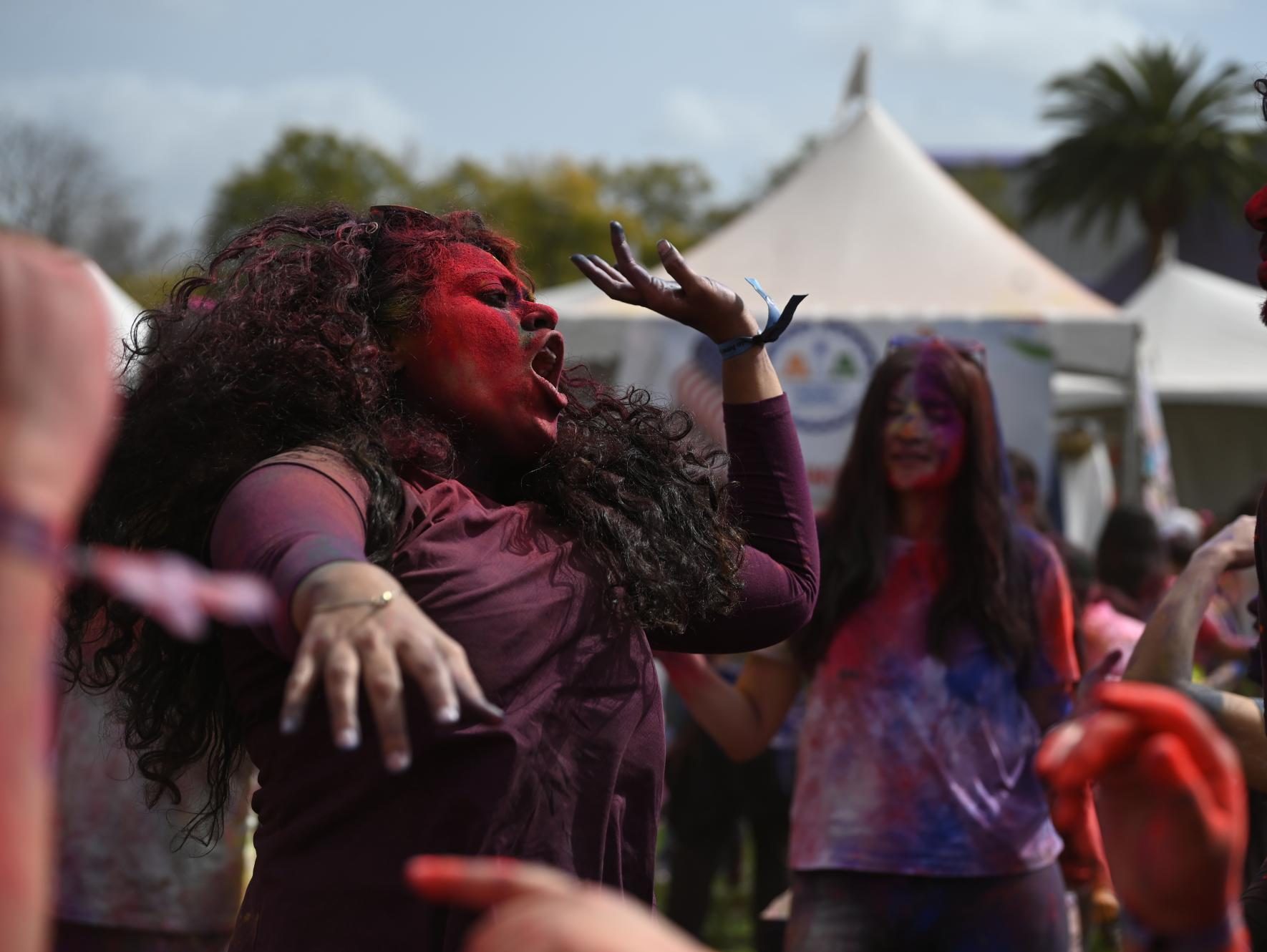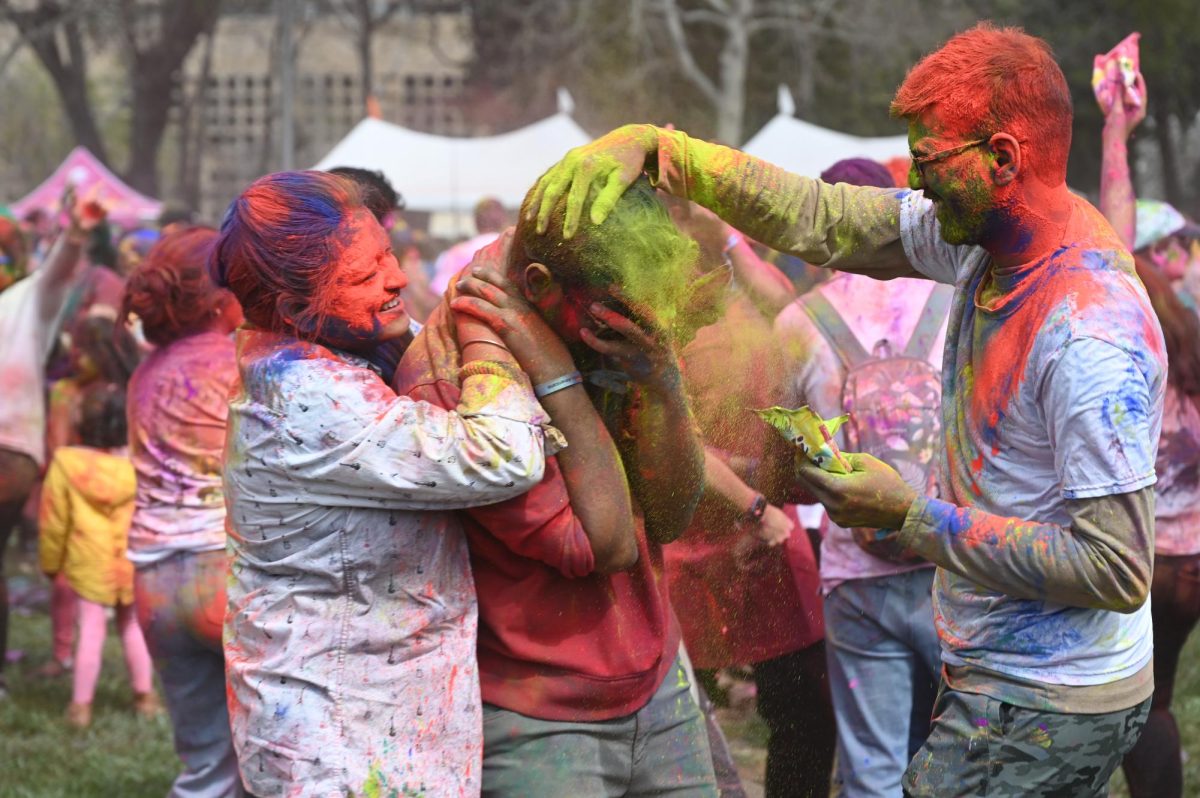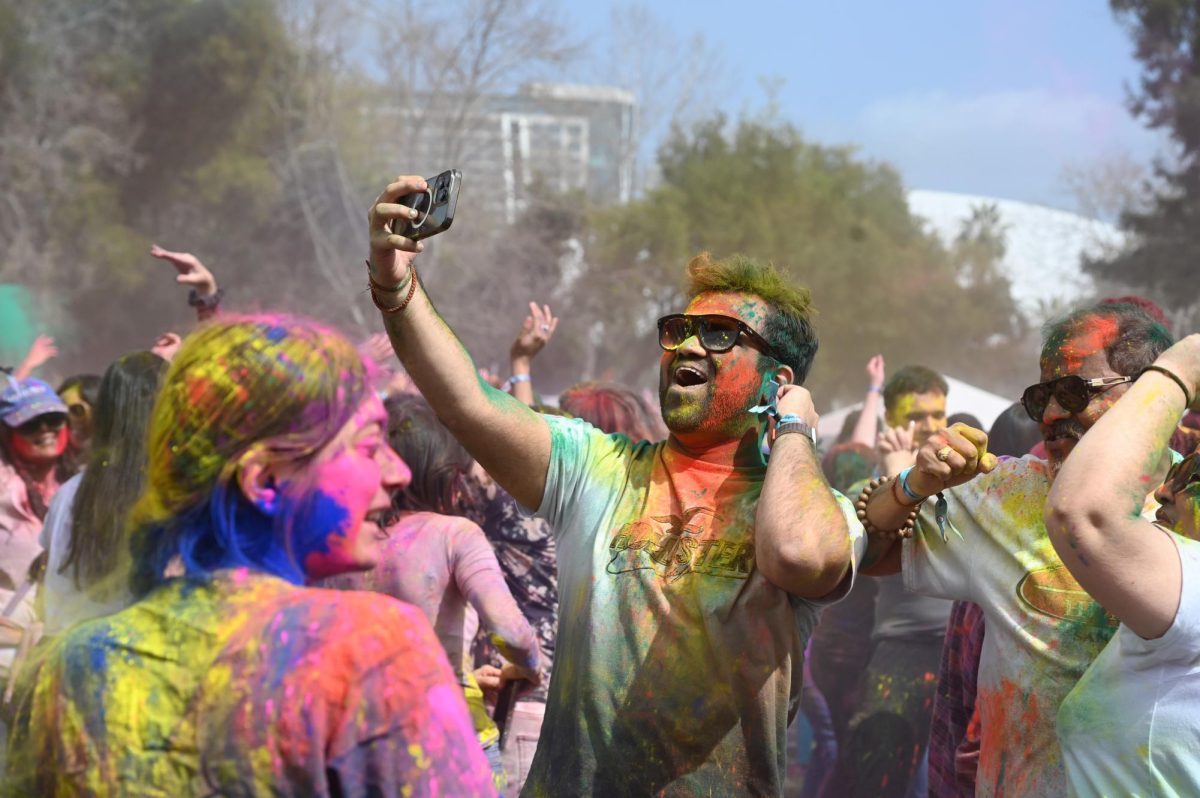Holi: The festival of colors
![Families party together, singing and dancing to music in celebration of the festival Holi. “[Holi] was some of the best memories of my childhood,” Aarav Borthakur (12) said.](https://harkeraquila.com/wp-content/uploads/2025/03/DSC_8943-e1743315652548.jpg)

Flashes of striking colored pigment disperse in the sky. Upbeat desi music reverberates through the crowd. People of all ages throw colored powder and water at each other, as laughter and cheers of joy fill the air. This is Holi.
The Hindu festival of Holi celebrates the beginning of spring and the victory of good over evil. It is celebrated on the last full moon day of the month Phalguna from the Hindu lunar calendar as an end to the larger month-long celebration.
For many individuals, Holi is not only a celebration of color but also a way to connect with their culture and loved ones. Each family celebrates Holi with unique traditions.
For Aarav Borthakur (12), Holi represents the culmination of his favorite childhood memories. From strategizing water-gun tactics to eating his family’s traditional Holi meal, chole bhature, the festivities have brought him closer to loved ones.
“[Holi] was some of the best memories of my childhood,” Aarav said. “The holiday symbolizes nostalgia for me because it reminds me of the days when I was a child, and I used to look forward to Holi for weeks. We used to buy water guns and colors before the Holi event, and it was really fun because we’d debate which water guns to get, so pre-Holi shopping brought me closer to my friends.”

Several events in the Bay Area hosted hundreds of people participating in Holi activities, from throwing colored pigments called gulal to dancing to upbeat music. These events welcome people of any age or background and create an environment full of excitement and community.
Although the throwing of gulal may appear purely festive, the colors hold deeper symbolic meanings. Red represents love and fertility, while green signifies spring and new beginnings. Following Hinduism, blue reflects the color of Lord Krishna’s skin, whereas yellow symbolizes auspiciousness.
More than just connecting community members, Holi commemorates the legend of Prahlad and Holika, two central figures in Hindu mythology. According to scripture, Prahlad, a devout follower of Lord Vishnu, survived an attempt on his life by his aunt Holika, who tried to trick him into sitting on her lap in a fire. Protected by Lord Vishnu, Prahlad emerged unharmed, while Holika was consumed by the flames. To commemorate Prahlad’s victory and ward off evil spirits, Hindus celebrate Holika Dahan on the night before Holi by lighting bonfires to burn evil presences.
Indian Student Association Secretary Tanvi Sivakumar (11) remembers learning about the religious background of Holi and recalls the anecdote each year.
“Holi has always been super fun because my family has always gone to huge celebrations with many of our family members,” Tanvi said. “My family always goes into the festival with white shirts, and we all come out drenched in color. When I was younger, I remember my dad told me it’s a celebration of good conquering evil, rooted in the story of Prahlad and Holika, so I always remember that story when this time of year comes around.”
By elevating and understanding our peers’ traditional and cultural history, we can grow as a community. The festivities of Holi remind us to find color in our everyday lives, striving to celebrate the pleasures of each day with the hope and love the holiday brings.





